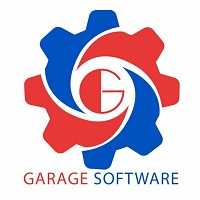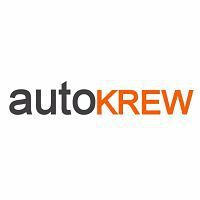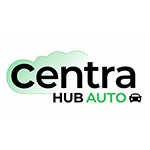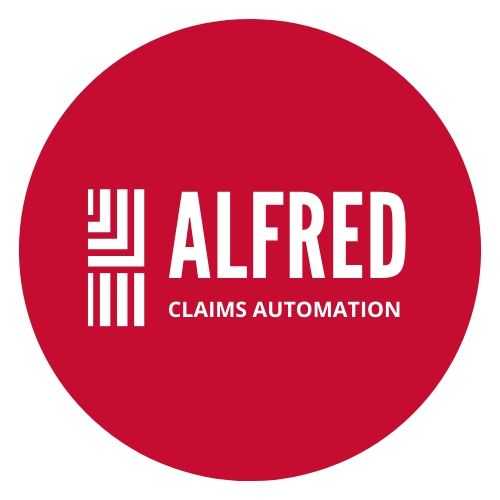What Is Automobile Industry Software?
Automobile Industry Software, often known as Automotive Software, is a form of software developed exclusively for the automotive industry. It is used by automakers, suppliers, dealerships, and other companies involved in car production, distribution, and repair. This software is essential for streamlining and optimizing many operations in the automotive industry, including as design, engineering, production, supply chain management, sales, marketing, and after-sales services.
With the digital transformation of the industry, the adoption of Automobile Industry Software has become a vital component for firms to remain competitive. One of the primary tasks of this program is to facilitate efficient and precise product design and development. It enables automotive companies to create virtual models of automobiles, test them for safety and functionality, and make any necessary changes before putting them into production. This reduces development time and costs while ensuring the delivery of high-quality automobiles to market.
Furthermore, automobile industry software includes functionality for automating and managing production operations. It allows producers to monitor and regulate assembly lines, maintain inventories, manage suppliers, and simplify other production procedures, which leads to increased productivity and cost savings. This software helps dealerships manage customer data, sales, and marketing activities.
It enables them to enhance the consumer experience, foster brand loyalty, and increase sales and revenue. Another important feature of Automobile Industry Software is the capacity to collect and analyze data from a variety of sources, including sensors, automobiles, and consumer contacts. This data gives useful information about market trends, customer behavior, and vehicle performance. Businesses can utilize this data to make more informed decisions and promote continual improvement.
What Are The Recent Trends In Automobile Industry Software?
Recent Trends in Automotive Software: The automotive business is continually evolving and adopting new technologies to improve efficiency, save costs, and improve the entire consumer experience. In recent years, substantial advances in automotive industry software have transformed the way cars are made, sold, and repaired. To make an informed decision, a buyer intending to invest in this area must stay up to date on the newest trends in automobile industry software. Let's look at some of the latest trends in this industry.
1. Artificial Intelligence (AI) and Machine Learning: The combination of AI and machine learning has transformed the automotive sector, making vehicles more intelligent and convenient. Vehicles are now safer and more user-friendly thanks to AI-powered software, which includes enhanced driver assistance systems, predictive maintenance, and voice-activated instructions. Machine learning algorithms use data from multiple sensors to make real-time judgments, which improve overall vehicle performance.
2. Internet of Things (IoT): IoT is quickly becoming the backbone of the automotive industry, enabling cars to communicate with other vehicles, traffic signals, and infrastructure for a more smooth driving experience. IoT-enabled gadgets collect and send data to the cloud, delivering vital information to manufacturers and drivers. This trend has also resulted in the development of smart parking, routing, and infotainment systems, which improve car connectivity and efficiency.
3. Augmented Reality (AR) and Virtual Reality (VR): AR and VR are making tremendous advances in the automotive sector, changing the way vehicles are built, tested, and sold. AR technology enables automakers to envision and modify vehicle designs in a virtual environment, lowering the time and cost involved with physical prototypes. On the other hand, VR technology is employed for immersive training and simulation, which improves the skills of automotive engineers and technicians.
4. Cloud Computing: Cloud computing has greatly benefited the automotive sector by providing a cost-effective and scalable platform for data storage, analysis, and administration. Automakers may collect and analyze car data in real time using cloud-based software, resulting in greater vehicle performance, predictive maintenance, and a better customer experience. It also supports remote software updates, which reduces the need for vehicle recalls.
5. Data Analytics: In today's data-driven decision-making world, the importance of data analytics in the automotive sector cannot be overstated. Automakers can extract important insights from massive amounts of data generated by vehicles and consumer interactions using advanced analytics tools and approaches. This allows them to make more educated judgments, customize marketing campaigns, and improve the entire customer experience.
Benefits Of Using Automobile Industry Software
As the automotive industry evolves and becomes more competitive, it is critical for firms working in this area to use technology and software solutions to stay ahead. Automobile industry software provides a variety of benefits that can significantly improve the efficiency and effectiveness of automotive enterprises, resulting in improved profitability and customer satisfaction. In this buyer's guide, we'll look at the numerous benefits of using automotive industry software and how it may help organizations in the industry.
1. Streamlined Operations: One of the primary advantages of employing automotive industry software is the potential to streamline a variety of business operations, including inventory management, sales, and customer support. Businesses can utilize software to automate many operations, saving time and decreasing human error. This can lead to increased productivity and faster service delivery, hence improving the entire customer experience.
2. Comprehensive Data Management: Another key feature of automotive software is its capacity to consolidate and manage large volumes of data. This includes important information including customer profiles, car histories, and sales numbers. Businesses that have access to organized data can make better-informed decisions, discover areas for improvement, and track performance more effectively.
3. Promotes Communication And Collaboration: Efficient communication and teamwork are essential in any company, particularly the fast-paced automobile sector. Automobile sector software enables teams to connect and cooperate seamlessly, regardless of location. This can result in improved teamwork, faster decision-making, and better problem-solving, all of which lead to better customer experiences.
4. Increases Sales And Revenue: Automobile sector software may greatly increase sales and revenue by streamlining operations, enhancing communication, and collaboration. Better data management and insights enable organizations to identify and target potential customers, tailor marketing campaigns, and provide superior customer service, resulting in greater revenue and client loyalty.
5. Improves Customer Satisfaction: In today's competitive market, customer happiness is critical to the success of any company. Automobile industry software can assist firms in better understanding their customers' wants and needs, and catering to their preferences accordingly. Customers are more likely to be satisfied and return for future business when services are delivered efficiently and quickly. Finally, adopting automobile industry software can provide numerous benefits to firms functioning in this area. From optimizing operations and data management to increasing sales and customer happiness, software has become an indispensable tool for staying ahead in the competitive automobile sector. Businesses that invest in the right software solutions can boost their overall performance and achieve long-term success.
Important Factors To Consider While Purchasing Automobile Industry Software?
When it comes to selecting automotive industry software, it is critical to evaluate a variety of aspects to ensure you invest in the best solution for your company. This buyer's guide will highlight the most important elements to consider before making this essential selection.
1. Determine Your Business Needs: Before you begin researching different software options, it is critical to understand your company's specific requirements. Consider your company's size, operational kind, and existing issues.
2. Functionality and Features: After determining your company requirements, create a list of critical features and functionalities that the program must include. Ensure that the software includes tools and solutions for your specific requirements, such as inventory management, vehicle tracking, and customer management.
3. User-Friendly Interface: The software's interface should be simple and straightforward for your staff to understand and operate. A convoluted interface might result in increased training expenses and longer implementation times. A demo or free trial can assist you determine the software's usability.
4. Scalability: As your company expands, your software requirements will evolve. As a result, it is critical to invest in a scalable solution that can meet your growing requirements without causing substantial disruptions or additional expenditures.
5. Integration Capabilities: The automobile sector relies on a variety of software systems to perform diverse functions. As a result, it is critical to determine whether the software you are considering will connect seamlessly with your existing systems. This will provide a seamless workflow and effective data management.
6. Data Security: Data security is a significant responsibility in all industries, including the automotive industry. To protect your sensitive information, make sure the software you purchase includes comprehensive security features such as data encryption, user access limits, and regular backups.
7. Customer Support: A dependable customer support team is crucial when it comes to software solutions. Look for a software vendor who provides 24-hour customer assistance and a dedicated account manager to help you with any issues or questions that may occur.
8. Pricing: When choosing automotive industry software, examine the overall cost of ownership. Aside from the initial cost, consider any additional fees for installation, upgrades, and ongoing maintenance. By taking these critical criteria into account, you will be able to make an informed decision and invest in a software solution that will add value to your organization and promote growth. Always conduct extensive research, read reviews, and, if possible, seek demonstrations or free trials to make the best decision for your vehicle business.
What Are The Key Features To Look For In Automobile Industry Software?
Automobile industry software, often known as automotive software, is a form of specialized software developed to meet the specific requirements of the automotive industry. As a buyer, you must understand the important elements to look for in automotive industry software in order to make an informed purchase. In this buyer's guide, we'll go over the most important elements to consider when choosing this type of software.
1. Inventory and Parts Management: One of the key purposes of automotive software is inventory and part management. This includes monitoring and controlling inventory levels, ordering and purchasing new parts, and keeping track of suppliers and vendors. Look for software that includes effective inventory management capabilities such as automatic notifications for low stock levels, real-time part tracking, and supplier connectivity for easy ordering and purchasing.
2. Sales and Customer Management: Managing sales and customers is an important component of automotive industry software. Look for software that has functions like building and managing customer profiles, tracking sales transactions, generating invoices, and managing customer communication. This will enable your company to give better customer service and streamline sales processes.
3. Workshop Management: Automotive industry software should include tools to help you manage your workshop operations efficiently. This includes organizing appointments, monitoring job progress, and overseeing labor and equipment. Look for software with an easy-to-use interface, the ability to assign assignments to individual technicians, and real-time progress updates.
4. Accounting and Financial Management: Finance and accounting are critical components of any firm, and automotive industry software should include tools to assist with these operations. Look for software that supports income and expense tracking, tax administration, and connectivity with accounting software. This will help you keep track of your finances more efficiently.
5. Integration and Customization Options: As the automobile industry evolves, your software must adapt to changing requirements. As a result, it is critical to look for software that integrates with other tools and platforms as well as allows for customization. This allows you to tailor the program to your company's specific requirements and combine it with other technologies to boost productivity.
6. Usability: The program should be user-friendly and simple to navigate. This is especially crucial if you have numerous employees that use the product at varying levels. Look for software with a simple and straightforward user interface, clear instructions, and quick access to features.
7. Technical Support and Training: Finally, look at the software provider's technical support and training choices. Determine whether they give effective software training for your personnel and dependable technical support in the event of an issue. This will ensure that you have a seamless experience with the program and that any issues are addressed swiftly.
Why Do Businesses Need Automobile Industry Software?
Businesses in the automotive industry face complicated issues and have specific requirements that can benefit from specialist software solutions. Automobile industry software provides a complete and streamlined method to managing all parts of the business, such as sales, inventory, production, and distribution.
Here are the main reasons why organizations use automobile industry software:
1. Efficient Inventory Management: Automotive industry software enables organizations to manage their inventory more efficiently by delivering real-time updates on stock levels, purchases, sales, and orders. This allows firms to maintain ideal inventory levels, eliminate shortages, and limit the danger of overstocking.
2. Streamlined Sales Processes: In the fast-paced world of automotive manufacturing, time is money. The program streamlines firms' sales processes, from producing estimates and handling leads to closing deals and providing invoices. This enables firms to respond swiftly to client requests, resulting in speedier deals and increased income.
3. Real-Time Data Analysis: Modern automobile industry software includes robust data analytics technologies that deliver real-time information about business performance. This enables firms to make data-driven decisions, discover areas for development, and optimize their operations to achieve optimum efficiency.
4. Improved Customer Experience: With the advancement of technology, people expect quick and convenient service. Automobile industry software enables firms to provide a great client experience by allowing online bookings, tracking orders, and offering self-service choices. This can lead to increased client satisfaction, retention, and loyalty.
5. Improved Production Planning: Efficient production planning is critical for vehicle manufacturers to meet consumer expectations and preserve a competitive advantage. The software includes capabilities for planning and scheduling manufacturing processes, tracking progress, and managing resources, resulting in optimized production and cost savings.
6. Compliance Management: The vehicle sector is extensively regulated, and organizations must adhere to different regulations and standards. Automobile industry software includes capabilities like quality control checks, audit trails, and document management to help organizations satisfy these standards and retain their reputation.
How Much Time Is Required To Implement Automobile Industry Software?
The timing for implementing automobile industry software varies depending on the organization's individual demands and requirements. However, the usual time ranges from a few weeks to many months. The first step in installing automotive industry software is to evaluate the present systems and procedures in place. This includes understanding the workflow and identifying any potential gaps or pain points that the software might help with.
After selecting the software, the following step is to configure and tailor it to the organization's specific requirements. This may include data migration, customization, and system integration. Training is a key component of software implementation, and it is critical to allow staff ample time to become acquainted with the new system.
This can include hands-on training, online courses, and user manuals. Testing and troubleshooting may also be part of the installation phase to ensure that the software works properly and meets the organization's goals. This phase might last from a few weeks to a month, depending on the software's complexity. Finally, during the go-live phase, the software is formally launched and the old systems are transitioned to the new ones.
This phase may last several weeks, including time for final changes and employee help while they adjust to the new system. To summarize, the time necessary to develop automobile industry software might range from a few weeks to several months, depending on the organization's size and requirements.
It is critical to spend the necessary time configuring, training, and testing the software to ensure a successful and seamless transition. Investing time and effort upfront can result in long-term rewards and increased organizational efficiency.
What Is The Level Of Customization Available In Automobile Industry Software?
The level of customisation offered by automobile industry software varies based on the product and vendor. However, in general, there is a high level of customisation possible to meet the specific needs of various automobile enterprises. One of the key advantages of employing automobile industry software is its ability to streamline and automate procedures unique to the automotive industry.
This implies that the software may be tailored to your individual needs, whether you own a vehicle dealership, a repair shop, or another form of automotive business. Options for customization include inventory management, customer management, vehicle monitoring, and quotation and invoicing systems. These can be adjusted to your company's specific processes and requirements.
Furthermore, many automotive industry software vendors allow firms to add custom fields and data points, allowing them to record and track information unique to their operations. This level of personalization can significantly increase the efficiency and accuracy of data handling in enterprises. Some software suppliers additionally enable for integration with third-party programs and systems, which expands the options for customization and automation.
This can be especially useful for larger companies with more complex operations. When selecting automobile industry software, it is critical to discuss customization options with possible providers and understand their skills to fit your company's specific requirements. Some software suppliers may provide more customization choices than others, so it is critical to evaluate your needs and select the vendor that can best satisfy them.
Which Industries Can Benefit The Most From Automobile Industry Software?
Automotive Industry Software is a specialist application that assists automotive organizations in managing their operations more efficiently. With the advancement of technology, the automotive industry has seen an increase in demand for software solutions that help streamline processes and promote efficiency.
The following industries can gain the most from automotive industry software:
1. Automotive Manufacturers: Automotive Industry Software is a game changer for car manufacturers. It helps them to easily manage the full manufacturing process, from design and prototype to production and quality control. Real-time monitoring and data analysis enable manufacturers to identify and handle issues more quickly, leading in increased efficiency and cost savings.
2. Supply Chain Management: Supply chain management is an important component of the automotive business, and Automobile business Software can help to increase its efficiency. It allows firms to track their whole supply chain, from raw materials to final products, ensuring timely delivery and lowering lead times. It also offers data for making better decisions, such as optimizing inventory levels and estimating demand.
3. Dealerships and merchants: Automotive Industry Software can help auto dealers and merchants streamline their operations. It enables them to manage inventory, track sales and client contacts, and automate tasks like billing and service requests. With these capabilities, dealerships and retailers may improve the overall customer experience while increasing sales.
4. Aftermarket Services: Automotive software solutions play an important role in managing aftermarket services. Businesses may assure timely and effective maintenance and repairs by implementing features such as service scheduling and inventory tracking. It also allows them to monitor warranty claims and automate operations, which reduces costs and increases customer satisfaction.
5. Fleet Management: Automotive Industry Software is critical for businesses that manage a fleet of cars. It offers real-time vehicle tracking and monitoring, allowing businesses to optimize routes, save money on fuel, and assure timely maintenance. These characteristics promote safety and regulatory compliance, lowering the risk of accidents and liability.
Conclusion
With the rapid growth of technology, the automobile industry has adopted the usage of various software solutions to streamline and optimize its processes. From inventory management to sales and customer relationship management, the correct software may make all the difference in a dealership's or manufacturer's performance. After performing significant research and analysis, we have compiled this buyer's guide to assist you in making an informed decision when investing in automotive software. Here are the main takeaways.
1. Determine your Unique Needs: Before you begin your search, define the difficulties or areas in which you require assistance. This will allow you to narrow down your choices and select software that is tailored to your exact requirements.
2. Look For Sector-Specific Features: Automobile industry software includes functions such as inventory tracking, car sales management, customer relationship management, and more. Make certain that the software you purchase includes all of the necessary functionality for your organization.
3. Consider Scalability: As your firm expands, so will its software requirements. It is critical to select software that is scalable and can adapt to your changing requirements without causing substantial disruptions.
4. User-friendly Interface: The program should have a simple interface that is easy to use and navigate. This will help your personnel learn faster and work more efficiently.
5. Integration With Other Systems: If you currently have existing systems in place, you must select software that integrates seamlessly with them. This eliminates the need to switch between several systems, which saves you time and effort.
6. Analyze Prices And Customer Support: Take the time to analyze the costs of various software options, taking into account their features and suitability with your organization. Check the availability and quality of customer support provided by the software supplier. Investing in the correct automobile industry software can have a big impact on the performance and growth of your organization. By carefully analyzing your options and following the advice in this guide, you may select software that suits your current and future requirements. We hope you found this advice useful, and we wish you the best of luck in finding the right software for your business.






















